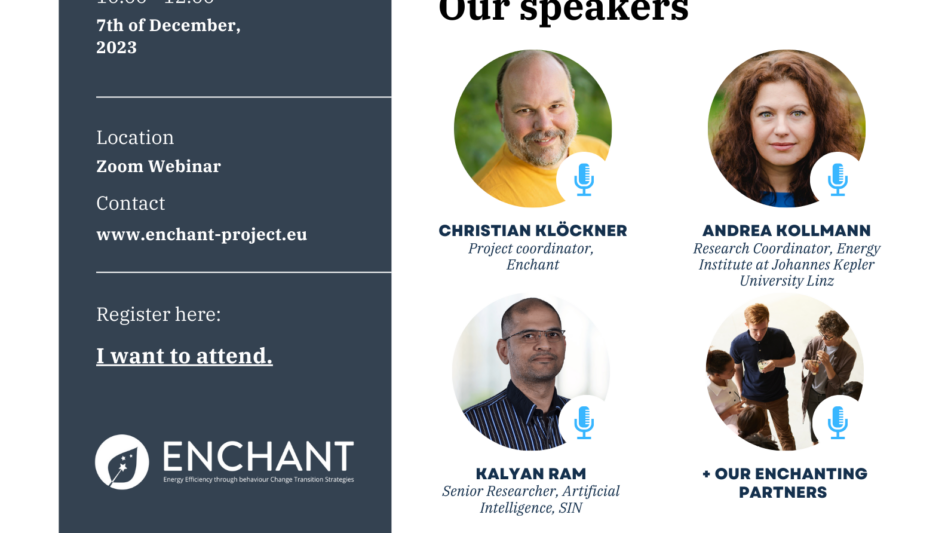
Webinar: How to get Citizens to Reduce Their Energy Consumption?
Slides and recording from webinar hosted by the EU project ENCHANT.

Slides and recording from webinar hosted by the EU project ENCHANT.
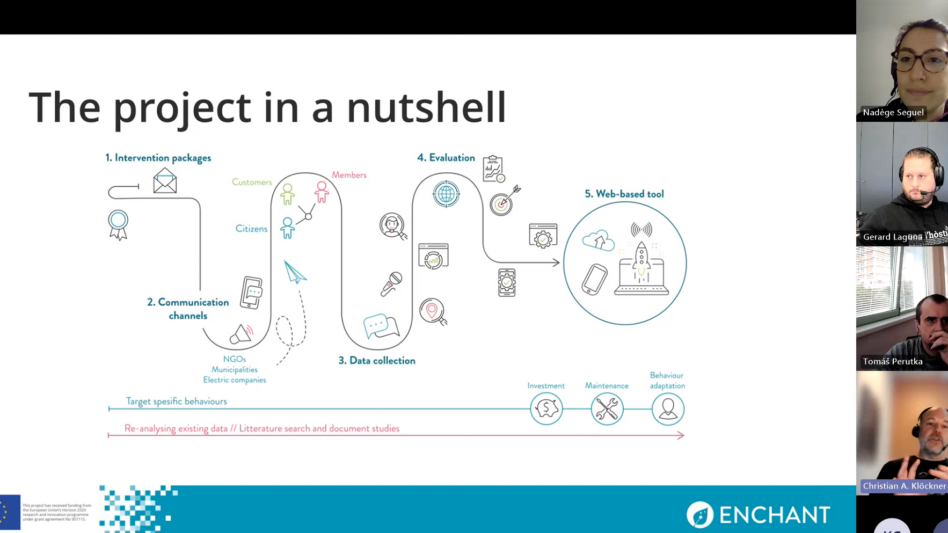
Project coordinator Christian Klöckner presented results from Enchant. Watch the recording.
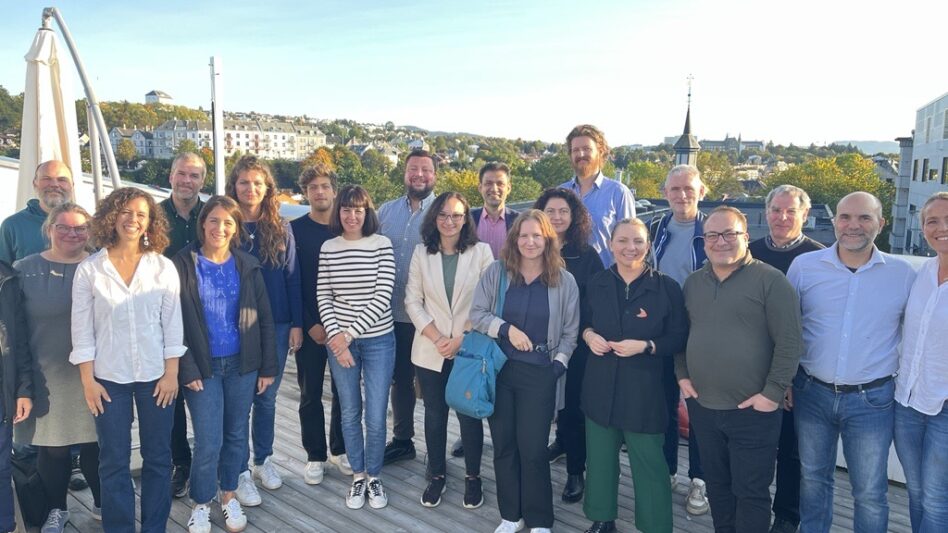
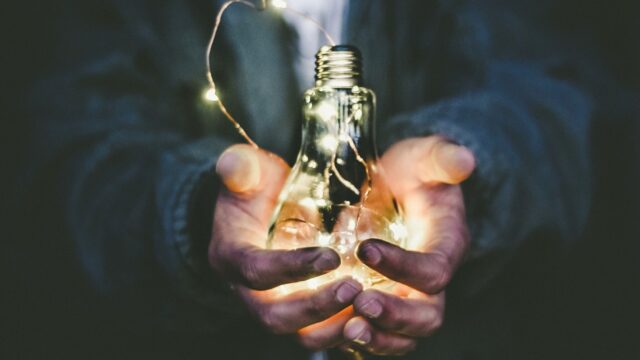
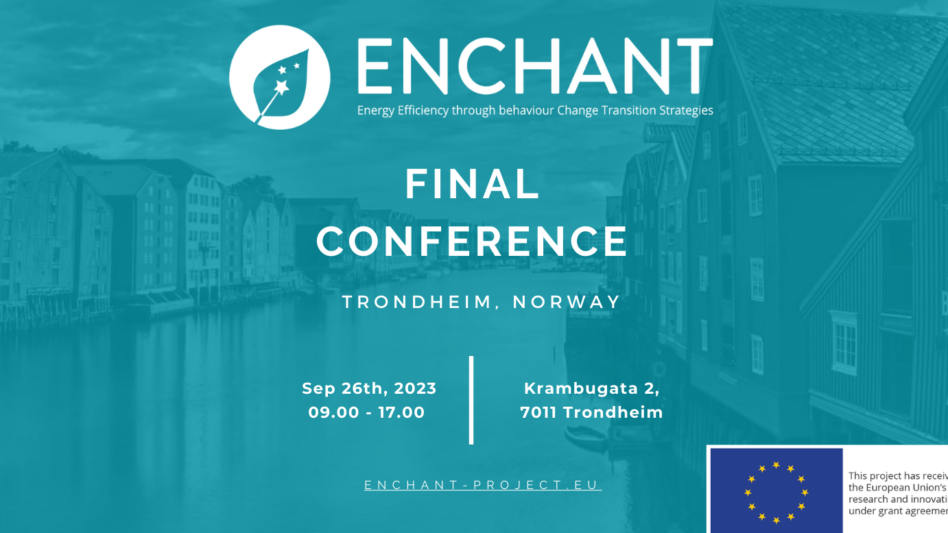

Mark your calendars! Save the date! On the 26. of September the Horizon-project Enchant is hosting its final conference in Trondheim.

Several researchers from the ENCHANT project recently published an article, where they present a comprehensive overview “of field experiments utilizing social norms, commitment and price-based interventions to promote energy conservation, load shifting, and energy efficiency behaviors”.
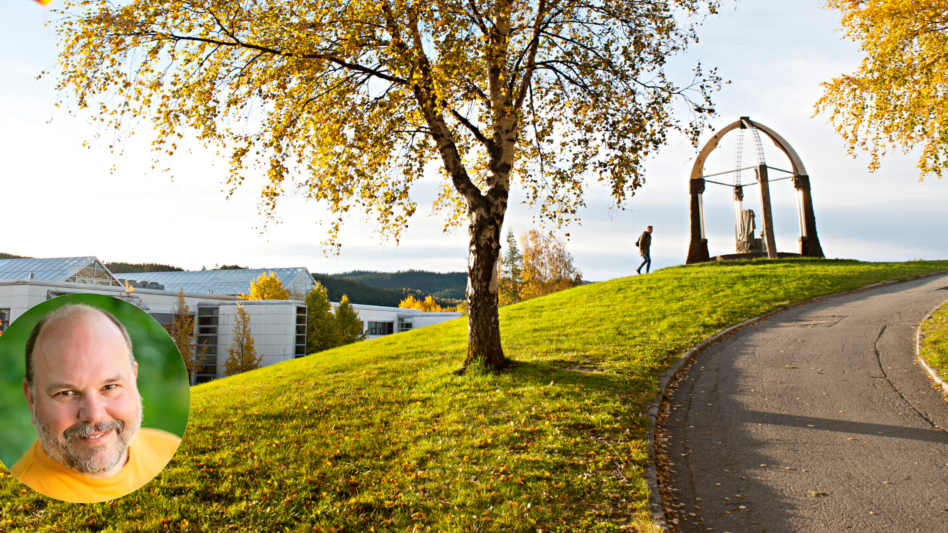
Dear ENCHANTING people, Another summer in ENCHANT is approaching, and as the project is nearing its end, we are preparing for finalising the data collection before a well-deserved holiday.
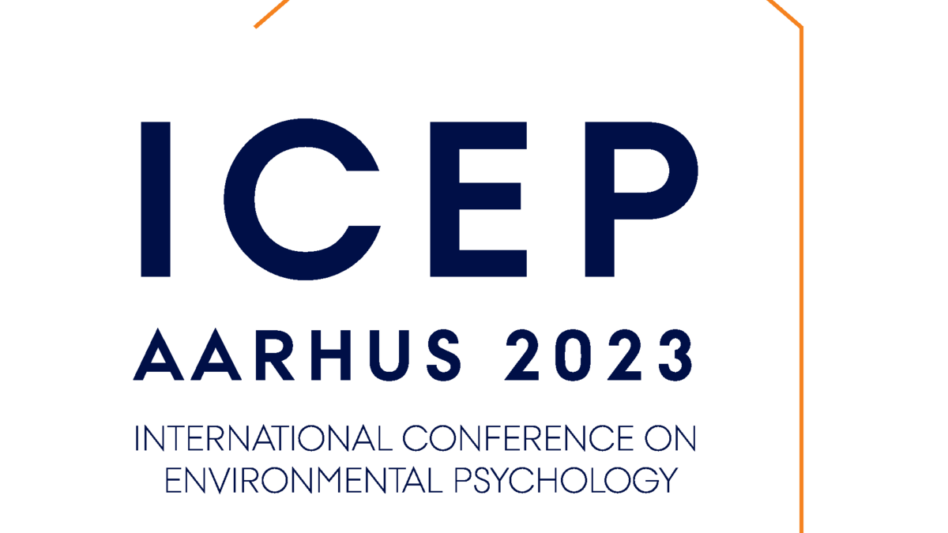
Our Enchanting project leader, Christian Klöckner will present findings at ICEP 2023 in Aarhus.
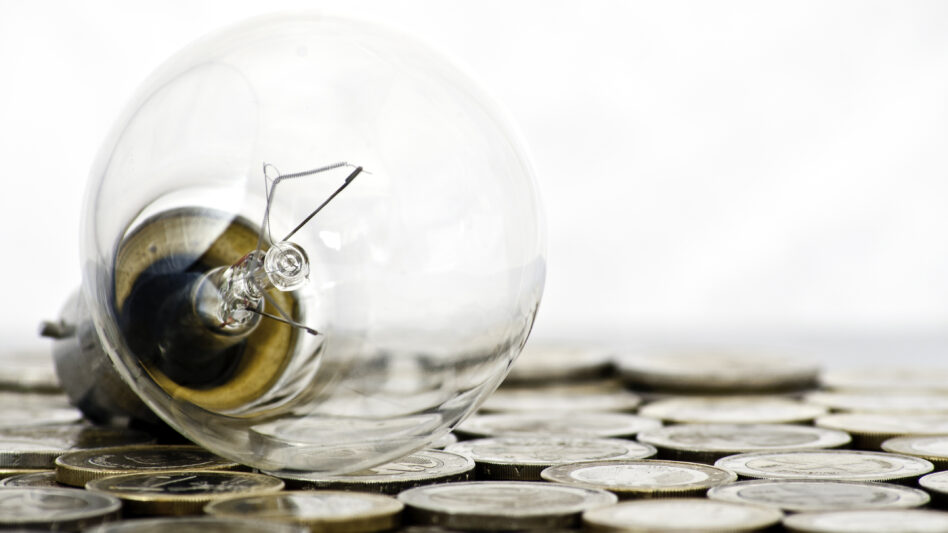
Through the EU project ENCHANT, we want to learn more about the energy consumption of our citizens.
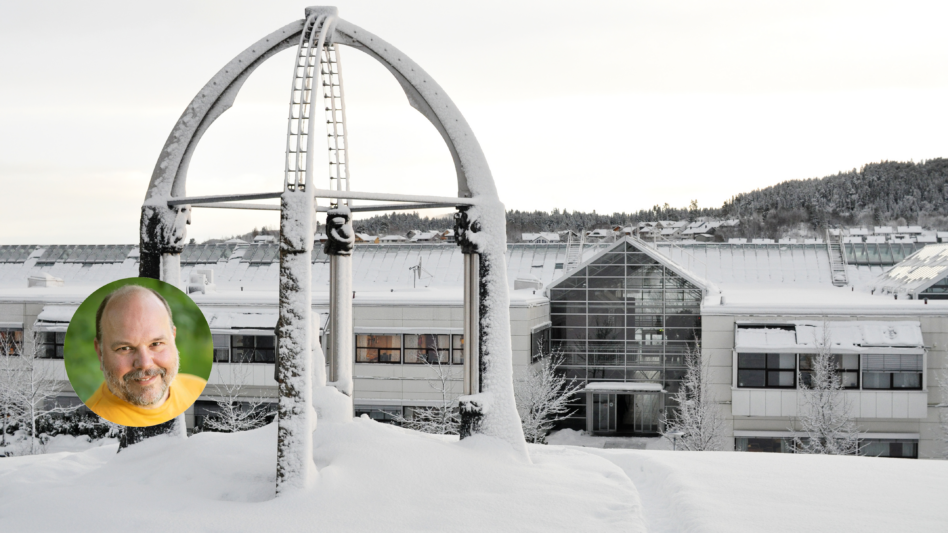
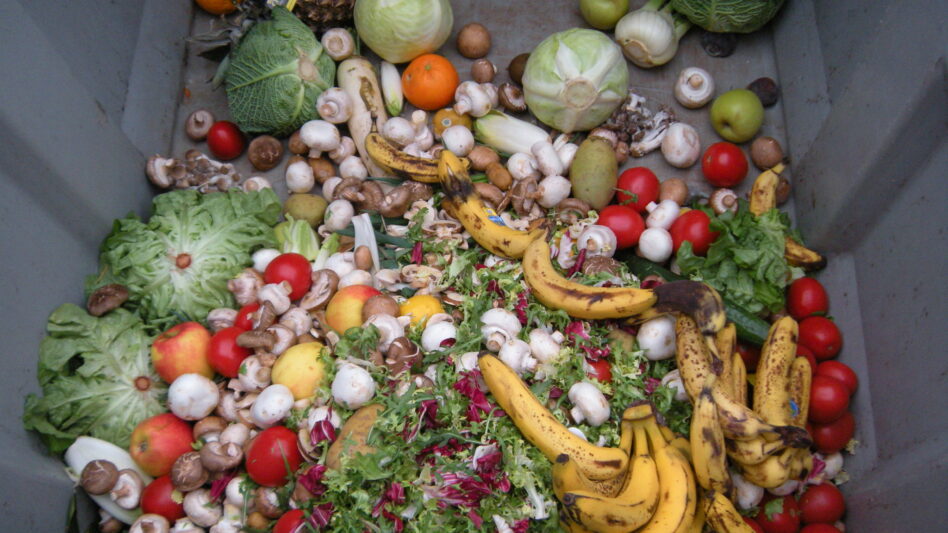
Each resident of Viken throws away an average of 75 kilos of fully edible food per year.
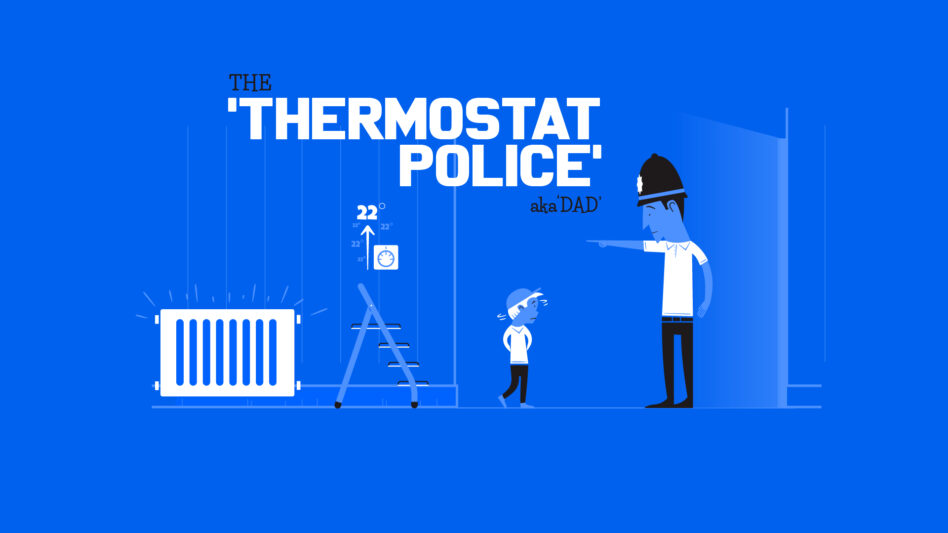
Why are dads so against changing the thermostat one degree? Isn’t it there to keep us comfortable? Is that one degree doing to make us poor?


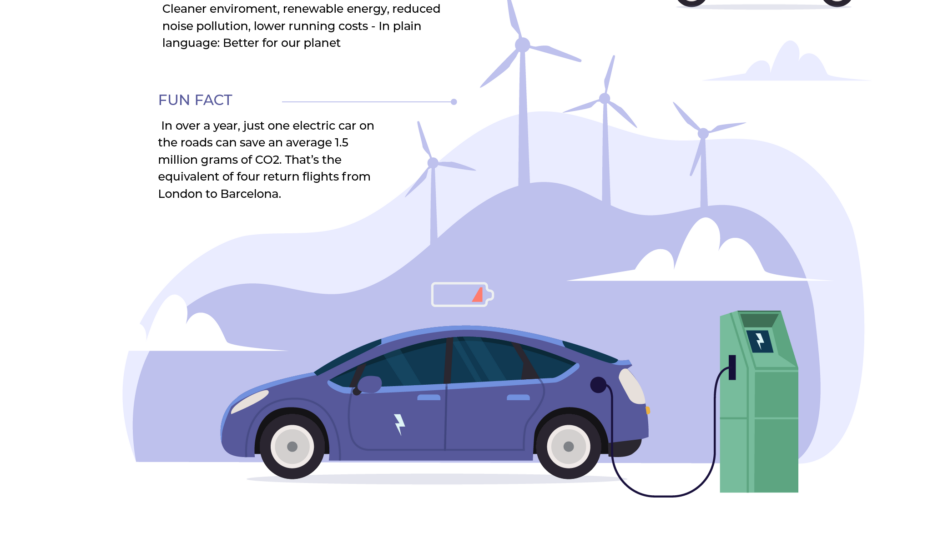
Cleaner environment, renewable energy, reduced noise pollution, lower running costs – in plain language: Better for our planet.
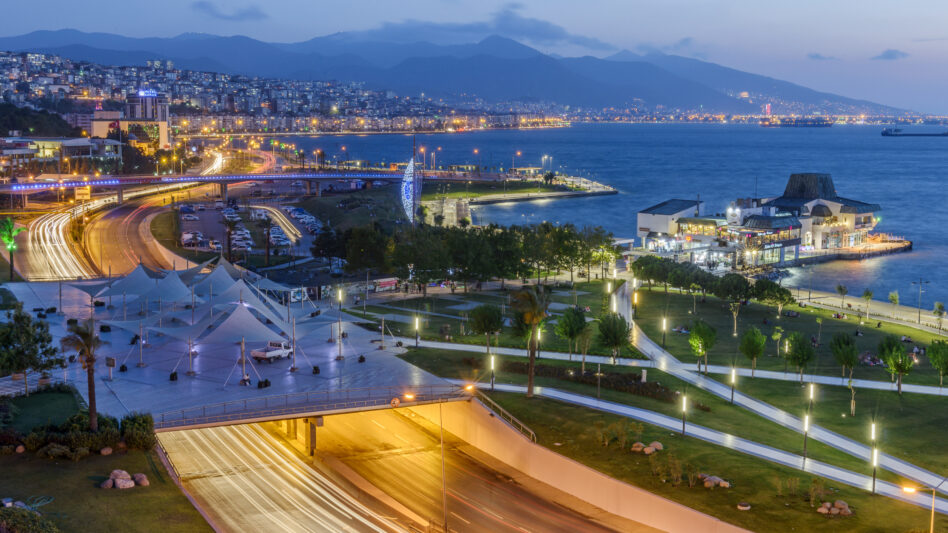
Beautiful İzmir, located around a gulf, has attracted attention for many years with its diversity in public transportation and active use of sea transportation.
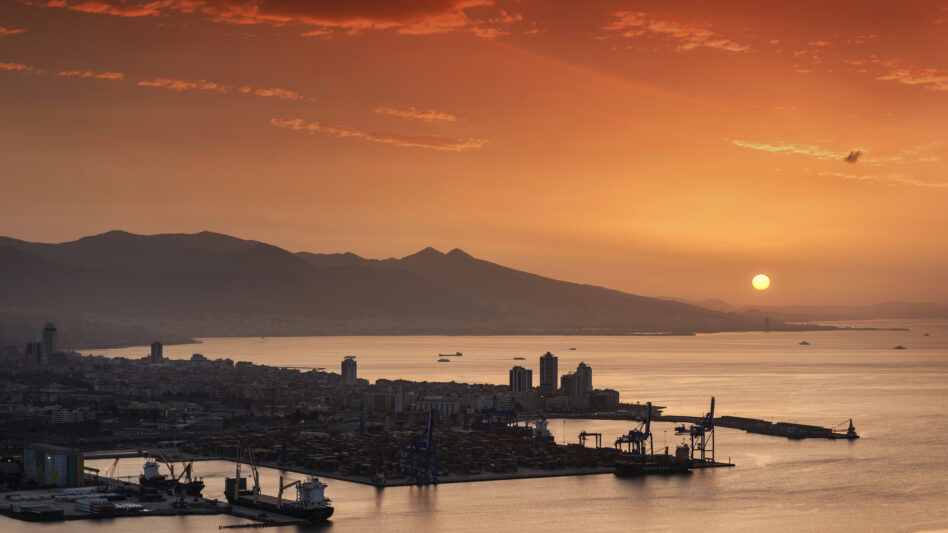
İzmir is the third-largest city in Turkey, with a population of more than 4 million and an area of 11,892 square kilometres.


The food system in different countries uses a massive amount of energy from start to finish. In the U.S. they consume as much energy preparing and transporting food as France uses to power the entire country for a year.
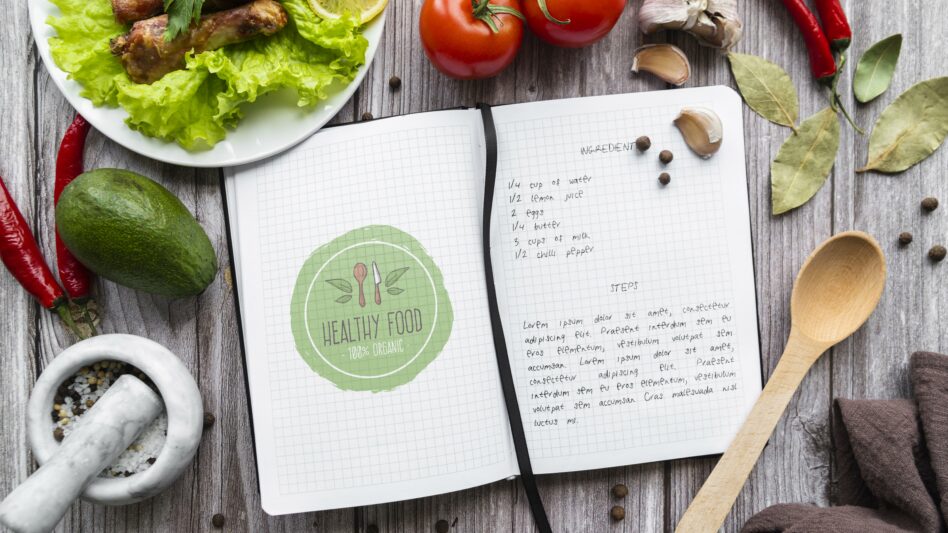
ENCHANTs partners are from different countries in Europe and have different traditions and dishes that they feel are “theirs”. We asked them to list up some of their favourite dishes that are energy efficient, healthy and really good. This is their respons.
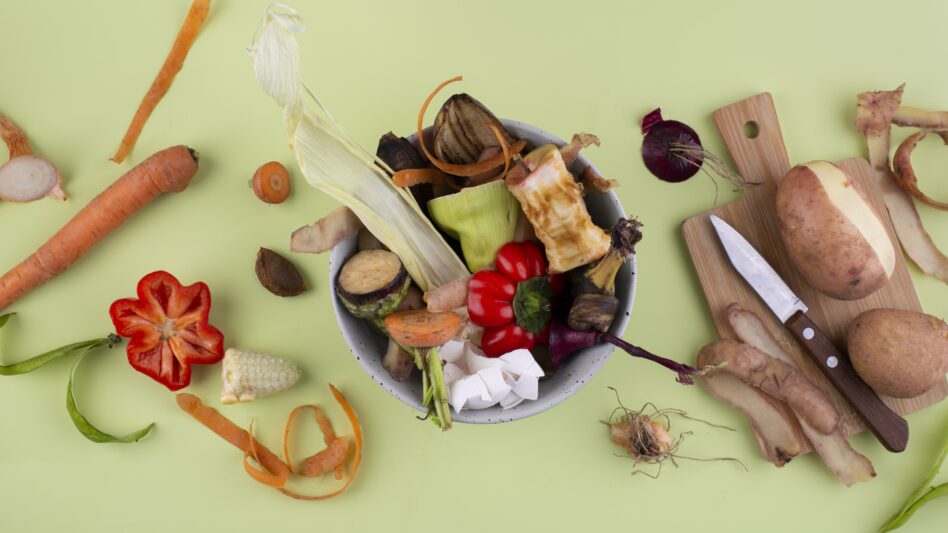
About a third of the food produced for human consumption is wasted every year and that comes with significant environmental and economic costs. 89 million tons of food goes to waste every year only in the European countries and 5 of them come from Romania.[1] Are you a part of the problem or a fighter […]

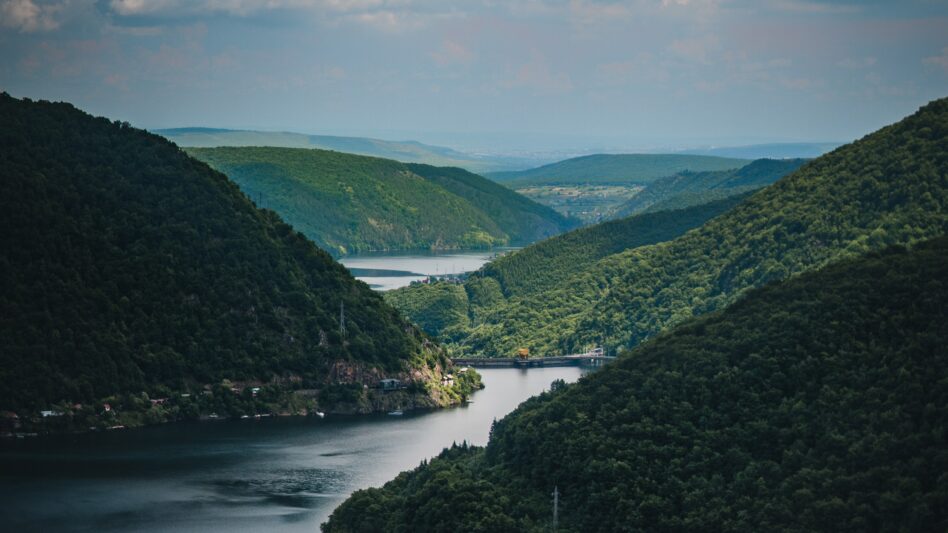

In Norway, rice pudding is a traditional meal on Christmas Eve. This is an energy efficient way to make the meal, and desert from the leftovers.

We understand you are busy people, but these news and tips about water & energy you don’t want to miss.
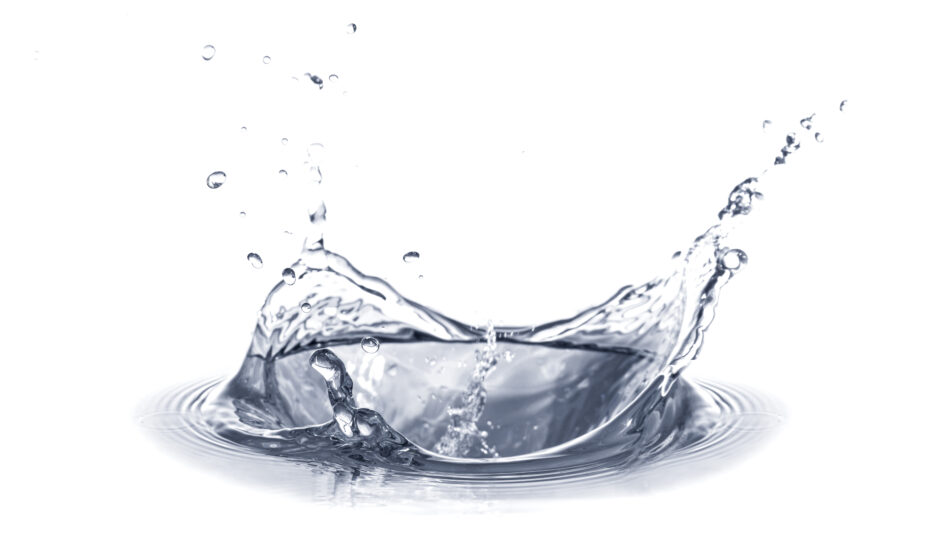
Why water? You might be wondering why we have chosen water as our main topic in our latest newsletter. Well, let us explain why.
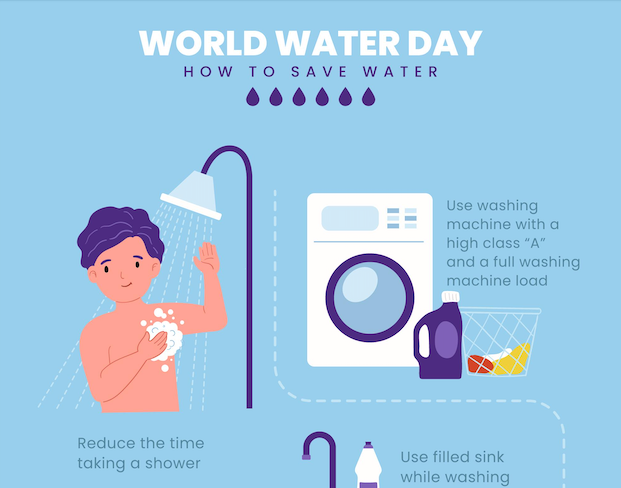
Next to air, water is the most important element for the preservation of life. Water is a finite commodity which, if not managed properly, will result in shortages in the near future. Water conservation can go a long way to help alleviate these impending shortages.

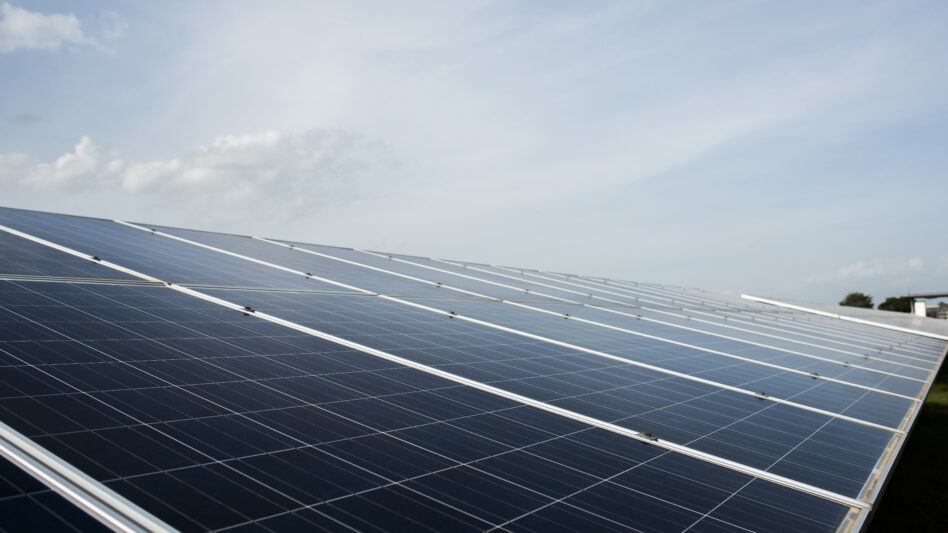
Solar energy is obtained from the sun’s radiation and it can be converted to electricity or heat. It is freely available and thanks to advances in technology, we can now harness even more of the solar energy that is continuously available to us.